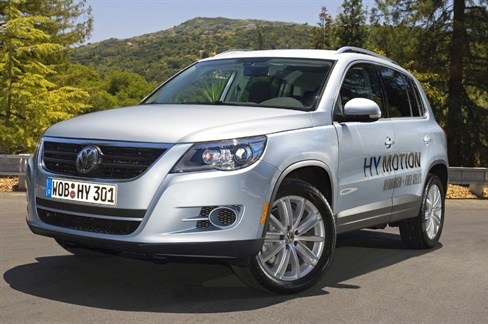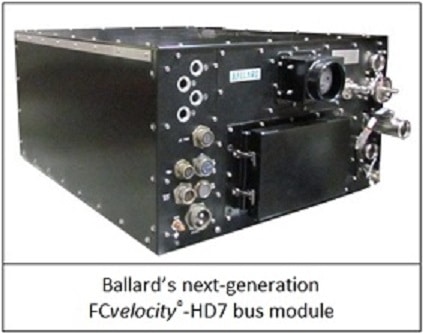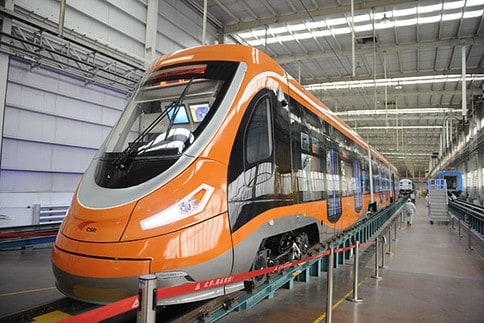
Following a five-year non-compete, Vancouver’s Ballard Power is back in the auto business. Last year, the announced a four year deal with Volkswagen to to develop fuel cells in demonstration vehicles. The engineering services Ballard will provide is part of a three-pronged “path to profitability” that includes product sales and IP licensing.
Shares of Ballard Power (TSX:BLD) are racing today after fourth quarter results showed the company was EBITDA positive for the first time in its long history.
Ballard posted EBITDA of $200,000 on revenue of $17.3-milion in Q4, a reversal from negative $3.2-million in the same period last year.
The company also announced that John Sheridan, who has been CEO for eight years, will retire by the end of the year. Chairman Ian Bourne credited Sheridan with transforming Ballard from “an automotive fuel cell R&D organization, to successfully become a global leader in clean energy fuel cell products and services.”
While casual observers still associate Ballard with the automobile market, today’s results showed than more than a third of its fourth quarter revenue ($5.9-million) came from telecom backup power. The company’s fuel cell systems have performed especially well in places like Indonesia and in the Bahamas, where they helped maintain consistent power during when Hurricane Sandy hit the area in October of 2012. Management sees this division as part of a three-pronged “path to profitability” that includes product sales, engineering services and IP licensing.
Once the darling of the Canadian innovation sectors, shares of Ballard soared to more than $200 in March of 2000, as it received high-profile investments from DaimlerChrysler and Ford. Many believed that hydrogen fuel cells were the green automotive solution of the future, but Ballard came crashing back to earth when auto manufacturers couldn’t make the economics work. The Vancouver Sun’s David Baines points out that the company’s cumulative loss now sits at an astonishing (U.S.) $1.1 billion.
Byron Capital analyst Dev Bhangui says that until recently there have been fundamental problems with Ballard’s business model. But in a December report issuing a buy recommendation, Bhangui said Ballard has begun a fundamental change. He said the company’s focus on developing fuel stack to automobile OEMs, he says, was simply unsustainable because of the protracted timeline to commercialization. And selling to systems integrators didn’t work because the margins were too low. But Bhangui analyst says a recent shift in business model towards becoming a systems builder and solutions provider have moved Ballard up the fuel cell value chain. He says the effect on gross margins, which he believes are moving towards 30%, is dramatic considering the company’s gross margins just four years ago were close to 4%.
At press time, shares of Ballard Power on the TSX were up 14.4% to $3.73.
_____________________________________________________________________________________________________________
Leave a Reply
You must be logged in to post a comment.





 Share
Share Tweet
Tweet Share
Share




Comment